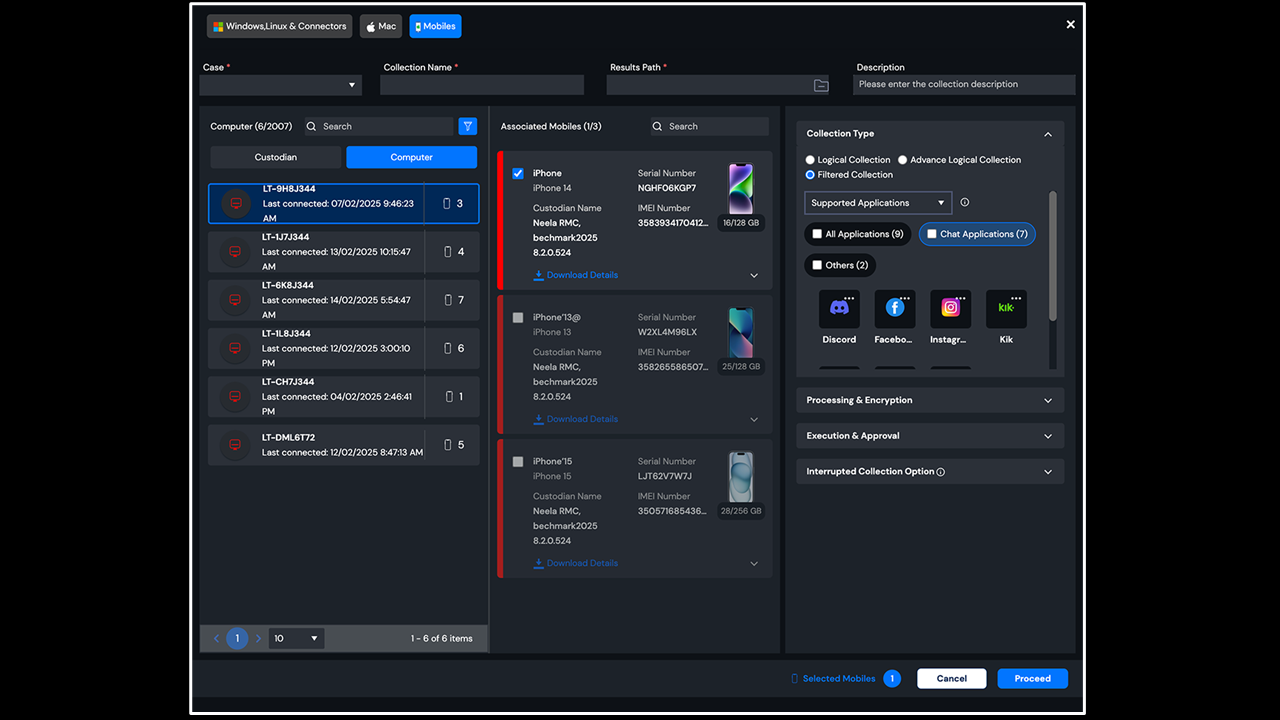E-discovery company Exterro today announced the forthcoming launch of a remote mobile device collection capability that aims to streamline the process of gathering mobile data for e-discovery and digital forensics investigations.
The company’s Remote Mobile Discovery product, set for general availability next month, allows legal teams to remotely collect and review mobile device data without requiring physical access to devices or the installation of software agents on phones.
“With Exterro Remote Mobile Discovery, legal, IT, and forensic investigation teams can initiate remote collections with a few simple clicks in the Exterro Data Risk Management platform,” the company said.
The news comes as mobile data continues to play an increasingly critical role in litigation and investigations. Exterro cites a 2023 study that found that 75% of legal cases now include mobile data.
The new offering integrates with Exterro’s existing e-discovery and forensics platform, allowing collected mobile data to be reviewed alongside other evidence sources like computer files and cloud data. The solution supports collection from numerous popular messaging and social media applications including Discord, Instagram, WhatsApp, and other widely-used apps.
“Mobile data discovery has become one of the most important and challenging aspects of data collection,” said Ryan O’Leary, research director for privacy and legal technology at IDC, who was quoted in Exterro’s announcement. “… Unlike traditional tools that require extensive technical expertise, Exterro’s intuitive platform makes mobile data collection accessible to legal and compliance teams, enabling them to efficiently review mobile data alongside other evidence for faster, more effective case resolution.”
No Software on Devices
Notably, the new product enables wireless data collection from mobile devices without installing software on the devices. Legal teams can collect data over Wi-Fi or a network or wired connection without disrupting the devices’ users.
A key feature highlighted by the company is the ability to preview and selectively collect data from specific applications rather than requiring full device collection. This targeted collection capability could help reduce both storage costs and review time by allowing legal teams to focus on relevant data sources.
The product requires a one-time trust relationship to be established between the mobile device and a computer running Exterro’s collection agent. After this initial setup, collections can be performed remotely whenever the device is on the same network as the collection computer. During collection, the device owner must enter their passcode once to authorize the process, providing a level of informed consent.
Exterro says the product provides an alternative to traditional mobile collection methods that often require shipping devices or sending investigators to custodian locations. “With the exponential growth of data residing on remote mobile devices, the ability to identify it, collect it and analyze it in an efficient way has been a significant limitation for e-discovery and forensics professionals around the world,” said Bobby Balachandran, founder and CEO of Exterro.
The product will be available both as a cloud-based SaaS solution and for on-premises deployment. Pricing will be based on the number of devices and data volume under management, with tiers ranging from 50 devices to unlimited devices.
During a preview demonstration for industry analysts, Exterro executives emphasized the product’s integration with their broader e-discovery platform as a key differentiator. Michael Hamilton, an Exterro executive, noted that while competitors may offer remote mobile collection capabilities, Exterro’s platform allows all collected data to be reviewed in a single interface without requiring transfers between different systems.
That said, a user can also export the data for use on other e-discovery platforms.
For enterprise deployments, the system can be configured to work with multiple phones connected to a single collection computer, potentially simplifying the process of managing collections across an organization. However, the requirement for devices to be on the same network as the collection computer could present challenges for collecting from remote employees or departing staff members.
 Robert Ambrogi Blog
Robert Ambrogi Blog